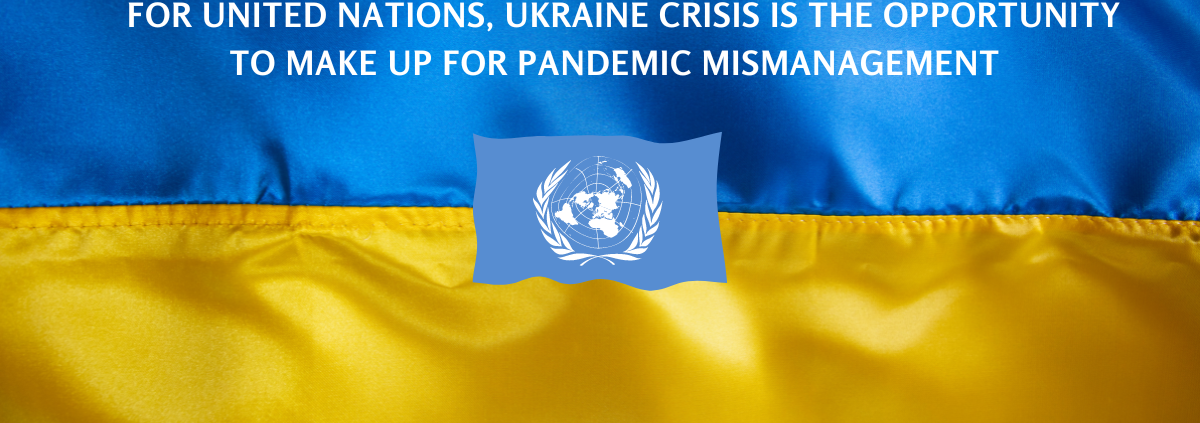Today, as I look at the Russian invasion of Ukraine unfold, I cannot help but remember a quote by UN Secretary-General António Guterres: “The pandemic is a clear test of international cooperation — a test we have essentially failed.” At a time when global economies had to come together for post-pandemic economic revival, we are witnessing a geopolitical schism. While much has been said about the intergovernmental organization and its affiliates’ mismanagement of the pandemic, it will pale in comparison to the catastrophe that the Russo-Ukrainian conflict could snowball into. I say this because, while the responsibility to manage a public health crisis with questionable origins is not fully on the UN, stopping a potential, full-scale world war definitely is — it was exactly why it was formed after WW2.
So, what is the UN doing? It proposed a Security Council resolution in the immediate aftermath of Russia’s invasion. As expected, Russia — a permanent member — leveraged its veto-wielding power to thwart any such efforts. This drew, albeit in lesser magnitude, parallels to China’s response to the West’s efforts to trace the origins of a virus that has since re-engineered our world, socially, economically, and politically. Yet, permanent members have been afforded the luxury to flout international law and face no repercussions from an intergovernmental organization whose sole purpose is to safeguard the rights of every nation.
That said, I derived cold comfort from the General Assembly’s decision to exercise the “Uniting for Peace” right, which allows it to make appropriate recommendations when the Security Council fails due to the lack of unanimity among the five permanent members. While not legally consequential, General Assembly’s resolution does carry merit, showing what the general perception across the world is. Needless to say, the UNGA resolution demanding an immediate end to Russia’s offence saw overwhelming consensus. But sadly, the consensus will not suffice to end the bloodshed.
What more can the UN do?
Despite my reservations with respect to the UN’s handling of the pandemic and the Ukraine crisis thus far, I’m still a believer in its ability to broker peace. The UN Secretary-General António Guterres must take greater initiative to establish dialogue and de-escalate the conflict. There is ample evidence of atrocities committed on civilians in Bucha — which needs to be brought to the table. Most importantly, on the side, a senior envoy must be stationed on the ground to provide humanitarian assistance. Such actions are time-critical, especially in light of a potential refugee crisis and reports of discrimination against Asians and Africans trying to flee Ukraine.
All stakeholders must be sensitized to Russia’s nuclear rhetoric, which has far-reaching implications. The ghosts of the Hiroshima-Nagasaki bombings continue to haunt us after over seven decades. A recurrence, in any part of the world, would be disastrous to all humankind and an egregious failure on the part of the UN — something that far supersedes its pandemic blushes.
Personally, I believe it is high time that the UN revamps the laws surrounding a permanent member’s veto power. It desperately needs rebalancing, with equal agency bestowed upon non-permanent members too. Else, provisions must be made to override a veto by, say, a large majority of permanent members, or two-thirds of the majority of member countries — in which case the consensus for the UNGA resolution would have stood. Also, about time the UN considers including new permanent members such as India, which can add a new dimension to the mix. Most importantly, the UN should act, and it must act fast, for its purpose is yet to fully manifest in the crisis underway.
https://www.un.org/press/en/2020/sc14312.doc.htm



